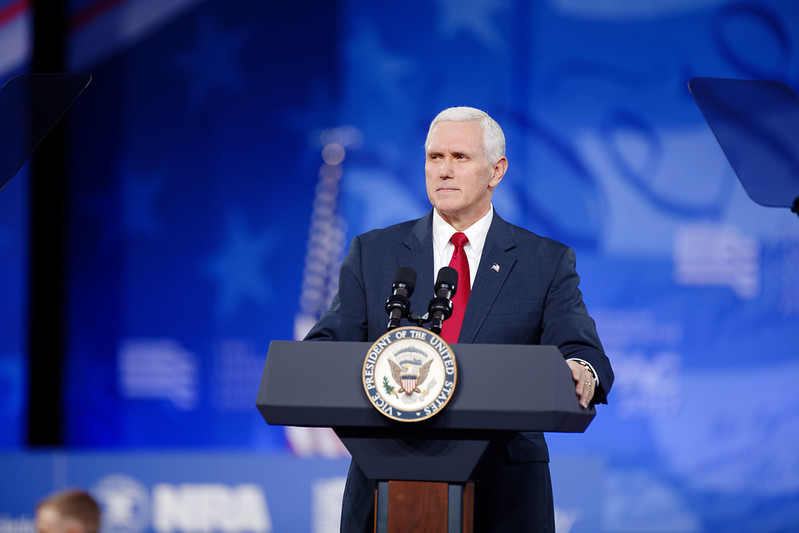Nick Explains: the 25th Amendment
Mike Pence addresses CPAC in 2017.
Oct 7, 2020
In the wake of President Donald Trump’s COVID-19 diagnosis, conversations began involving the 25th Amendment, which allows the president to temporarily make the vice president the acting president.
Section Three of the 25th Amendment reads: “Whenever the President transmits to the President pro tempore of the Senate and the Speaker of the House of Representatives his written declaration that he is unable to discharge the powers and duties of his office, and until he transmits to them a written declaration to the contrary, such powers and duties shall be discharged by the Vice President as Acting President.”
In short, the president can temporarily give power to the vice president in the case of disability or inability to act as president.
Upon first glance, this amendment seems to address a “Doomsday” scenario, perhaps one where the president has been significantly injured or mentally incapacitated. But, this amendment has been invoked three times in our history for fairly minor situations.
President Ronald Reagan invoked the 25th Amendment for the first time on July 12, 1985 when he underwent a colonoscopy. During this process, a precancerous lesion was discovered, and Reagan chose to remove it immediately, which required general anesthesia.
Reagan then wrote a letter transferring the power of the presidency to former Vice President George H. W. Bush. Though the letter did not specifically mention the 25th Amendment, it did follow all requirements and effects of the amendment. Bush was acting president from 11:28 a.m. until 7:22 p.m. the next day when Reagan submitted a second letter reclaiming power.
President George W. Bush invoked the 25th Amendment twice, following a colonoscopy in 2002 and another in 2007. Both of these invocations gave power to former Vice President Dick Cheney. During both occasions, no official actions occurred.
We arrive at the current moment. Trump has a life-threatening virus and is within the at-risk age group. The issue now is whether or not the president is considered “unable to discharge the powers and duties of his office,” as he is not presently under general anesthesia, as was the case for all other invocations of the 25th Amendment.
Many question the legitimacy of the information being supplied by the president’s physicians. According to the New York Times, Chief of Staff Mark Meadows said, “We’re still not on a clear path to a full recovery,” in regards to the president’s health and contradicting medical professionals at Walter Reed Hospital where he was admitted for three days.
Odds are, however, that President Trump will not invoke the 25th Amendment. For his re-election attempts, this would be utterly fatal. First, it would essentially be a surrender to COVID-19. By invoking the 25th Amendment, Trump would be admitting that he could not control its spread.
Second, Trump would worry Independent voters massively because they would not know which candidates are on the Republican ticket. With Vice President Mike Pence serving as acting president, it would be difficult for Independent voters to envision a properly functioning candidacy.
Additionally, knowing Trump, he will not give up power or let someone else be in the limelight. It’s hard to think of a scenario where he voluntarily cedes control.
But, what if it didn’t have to be voluntary?
Section Four of the 25th Amendment states that if the vice president and a majority of the executive cabinet submit a written declaration that the president is unable to fulfill his duties, the vice president immediately becomes acting president.
Is this scenario likely? Absolutely not. Is this scenario possible? Yes. Do I personally see it happening? No, but 2020 has been unpredictable thus far, so I wouldn’t rule it out.
Whatever the case may be, the president’s COVID-19 diagnosis is historic, and how it ends up affecting the election will undoubtedly be studied for years to come.













